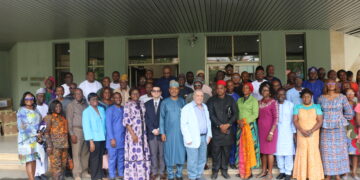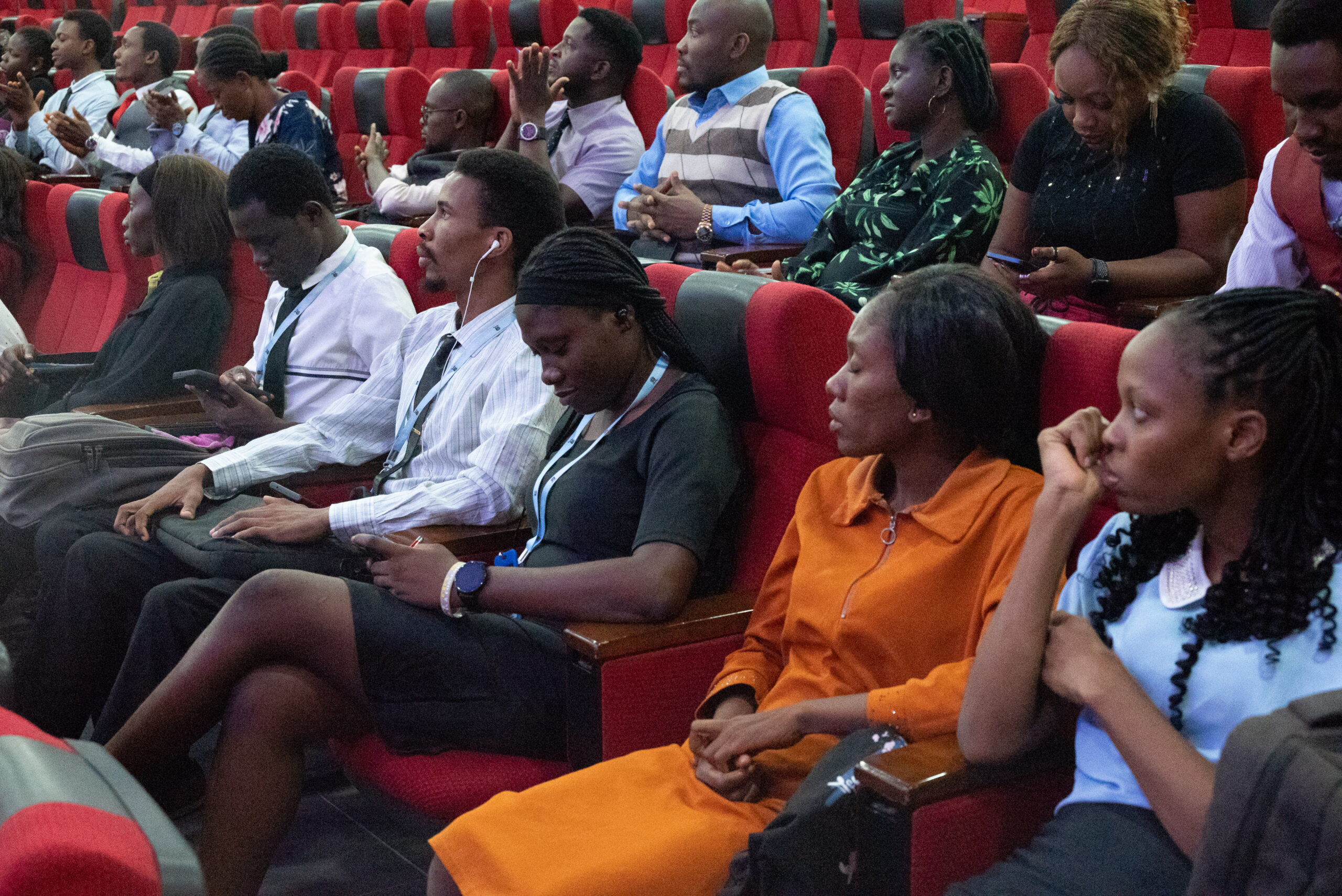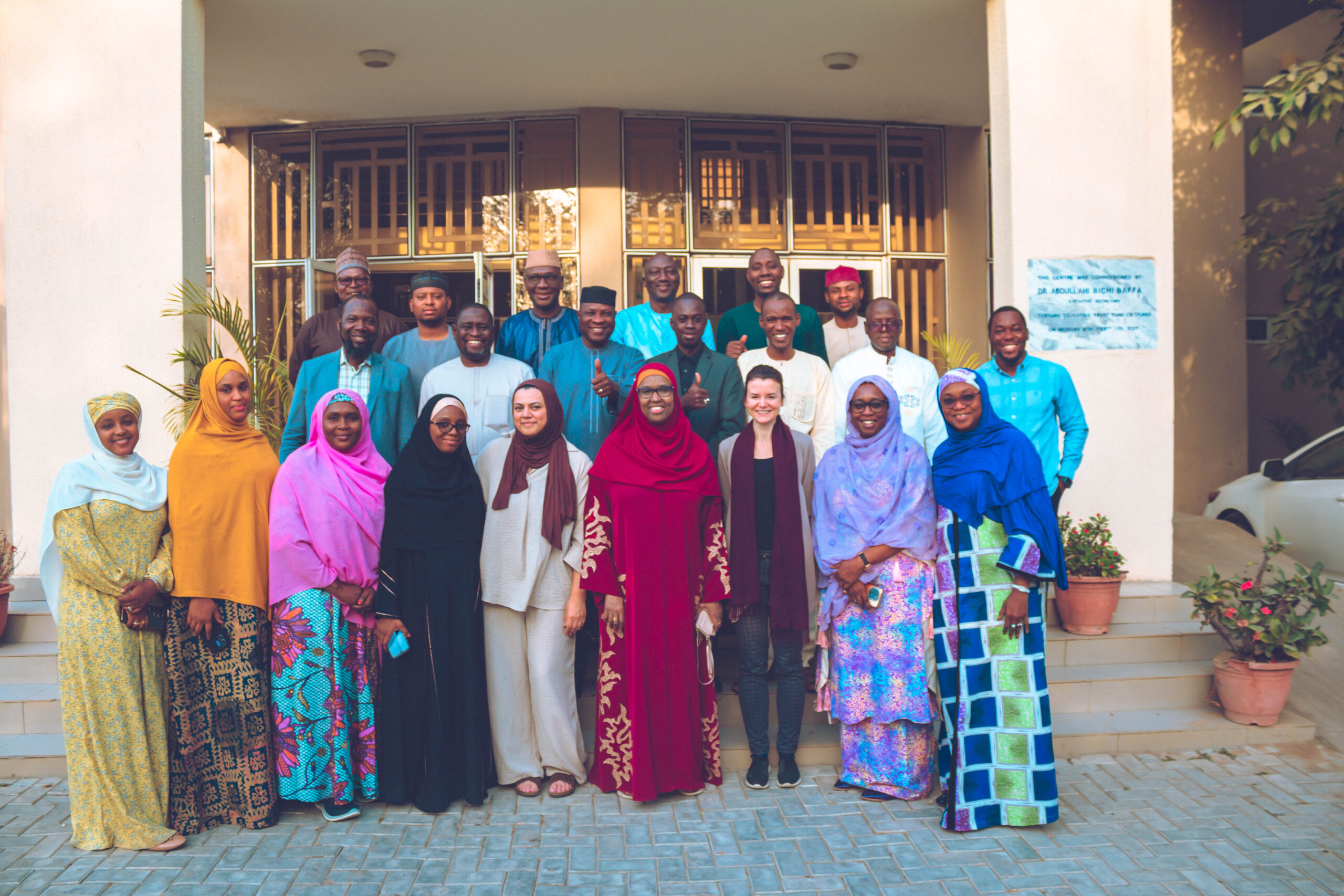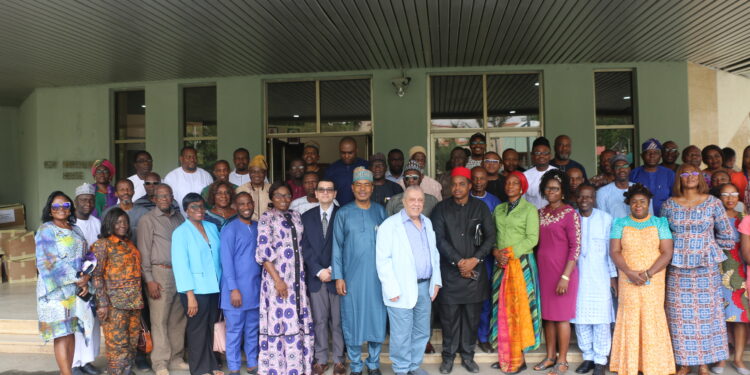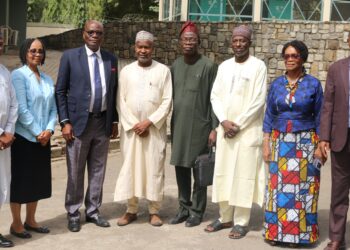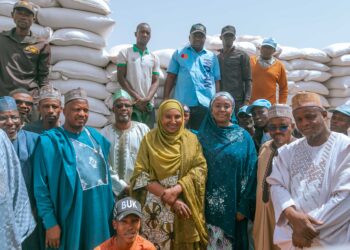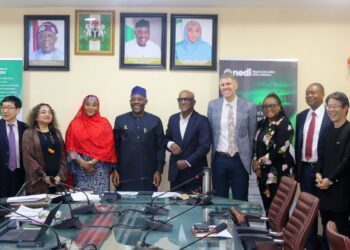By Yvonne Orekyeh
In keeping with its role of managing the Environmental Impact Assessment (EIA)Act of the Federal Republic of Nigeria, the Environmental Assessment Department (EAD) of the Federal Ministry of Environment (FMEnv) continues to play a central role in promoting environmental standards in all development projects in Nigeria. One of these projects is the Sustainable Procurement, Environmental, and Social Standards Enhancement (SPESSE) Project, a World Bank-supported initiative that aims to develop sustainable capacity in managing procurement, environmental and social standards in the public and private sectors in Nigeria.
Cognisant of the multi-disciplinary nature of environmental standards, the Environmental node was designed in such a way that it comprises not only the Environmental Assessment Department of the Federal Ministry of Environment but also two other departments; the National Environmental Standards and Regulations Enforcement Agency (NESREA) and the National Oil Spills Detection and Response Agency (NOSDRA).
In collaboration with these two departments, the EAD is expected to support the National Universities Commission (NUC)in managing the environmental capacity needs assessment, capacity building strategy, and implementation/operational plan. The Environmental node also has the responsibility to design short courses known as Track A for delivery by six Centres of Excellence (CEs) domiciled in federal universities spread across the six geo-political zones in Nigeria.
A critical component of SPESSE is the assessment and certification of professionals (graduates) of the Centres of Excellence by the relevant coordinating bodies for the three nodes under the Project upon completion of their programme. To successfully do this, the environmental node will rollout e-courses as well as design, develop and launch a certification scheme for all the environmental standardsprogrammes in the Centres.
The certification scheme will integrate the nuances of the sector, taking into account, the multi-disciplinary nature of environmental standards, international best practices, current regulatory demands, and industry needs, to ensure that the scheme is viable and sustainable.
…Harnessing for Sustainable Impact
Recognising, therefore, the need to harness the resources, prospects, and roles of the various stakeholders under the environment node, the World Bank embarked on a week-long mission which featured engagements with the various components which make up the node. The World Bank team was led by SPESSE co-Task Team Lead (co-TTL) and Lead Environmental Specialist, Dr Maged Mahmoud Hamed, and comprised Environmental Consultants, Dr Sherif Arif and Dr Ahmed Chinade Abdullahi.
The delegation met with the then Honourable Minister of Environment, Barr Mohammed H. Abdullahi and the Director, EAD, Dr Abbas Suleiman as well as other senior officials of the Ministry. They also met the Director-Generals of NOSDRA (Dr Idris Musa) and NESREA (Professor Aliyu Jauro). The team engaged with the members of the PIU under the environment node of the SPESSE Project in its drive to ensure the successful implementation of the SPESSE Project.
Discussions during the visits centred around the challenges encountered in project implementation, incorporating climate change considerations into the EIA process, improving compliance monitoring and enforcement with regards to the EIA and bottlenecks encountered in the development of a certification scheme/portal for the node. The engagements also noted the need to develop strategies for ensuring the sustainability of the project beyond the expiration of World Bank funds.
Dr Maged commended the efforts of all stakeholders and urged them to continue to push toward successful implementation. He assured them of the Bank’s continued support in addressing all the issues raised and its commitment to the success of SPESSE.
Also, as part of the mission, the World Bank paid a visit to the Lagos State Environmental Protection Agency (LASEPA) and the SPESSE Centre of Excellence in the University of Lagos (UNILAG) to gain some insight into the agency’s EIA mechanism for monitoring and enforcement and ascertain how the UNILAG SPESSCE can enhance LASEPA’s capacity to ensure that it continues to meet environmental standards in Lagos State.
